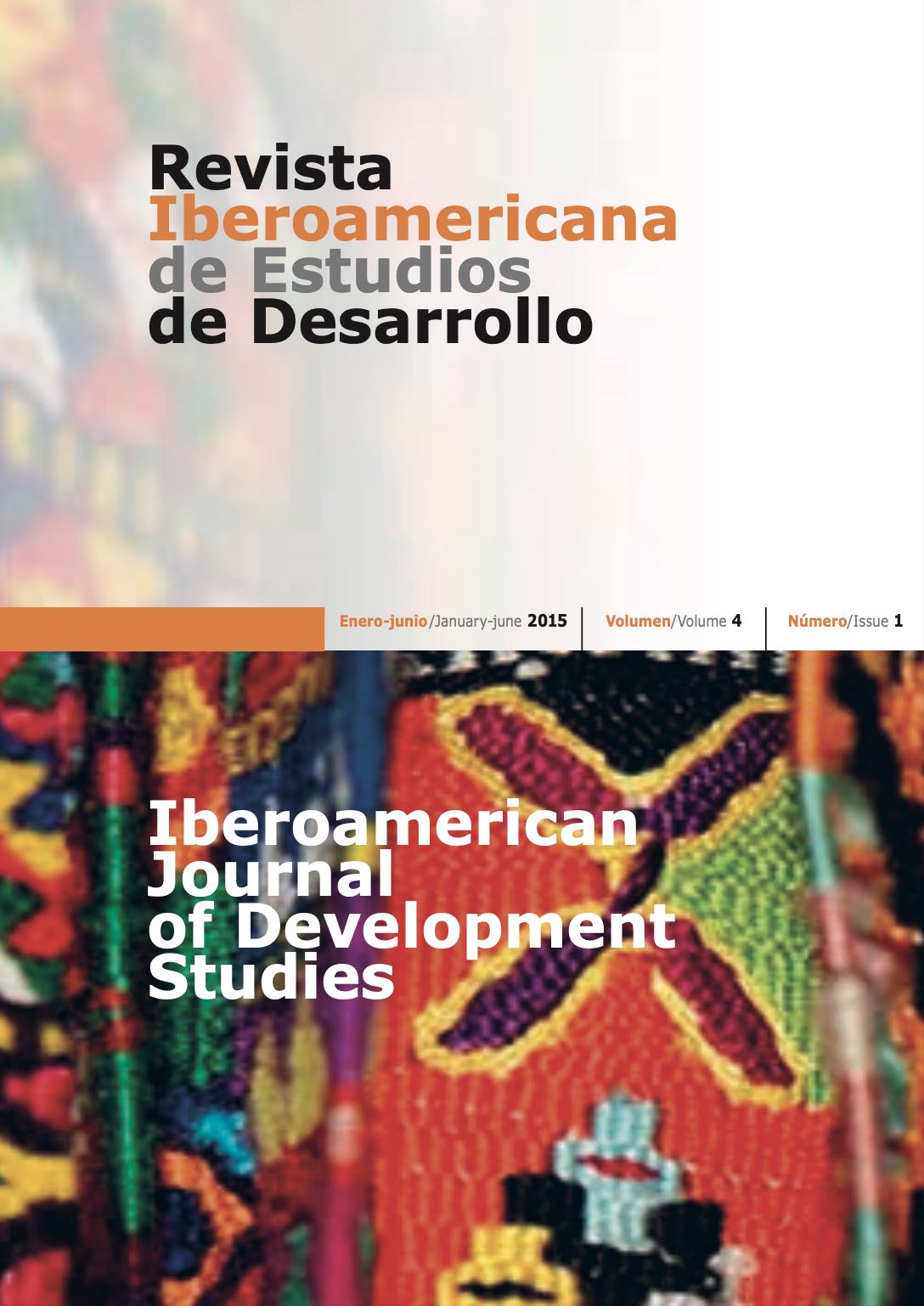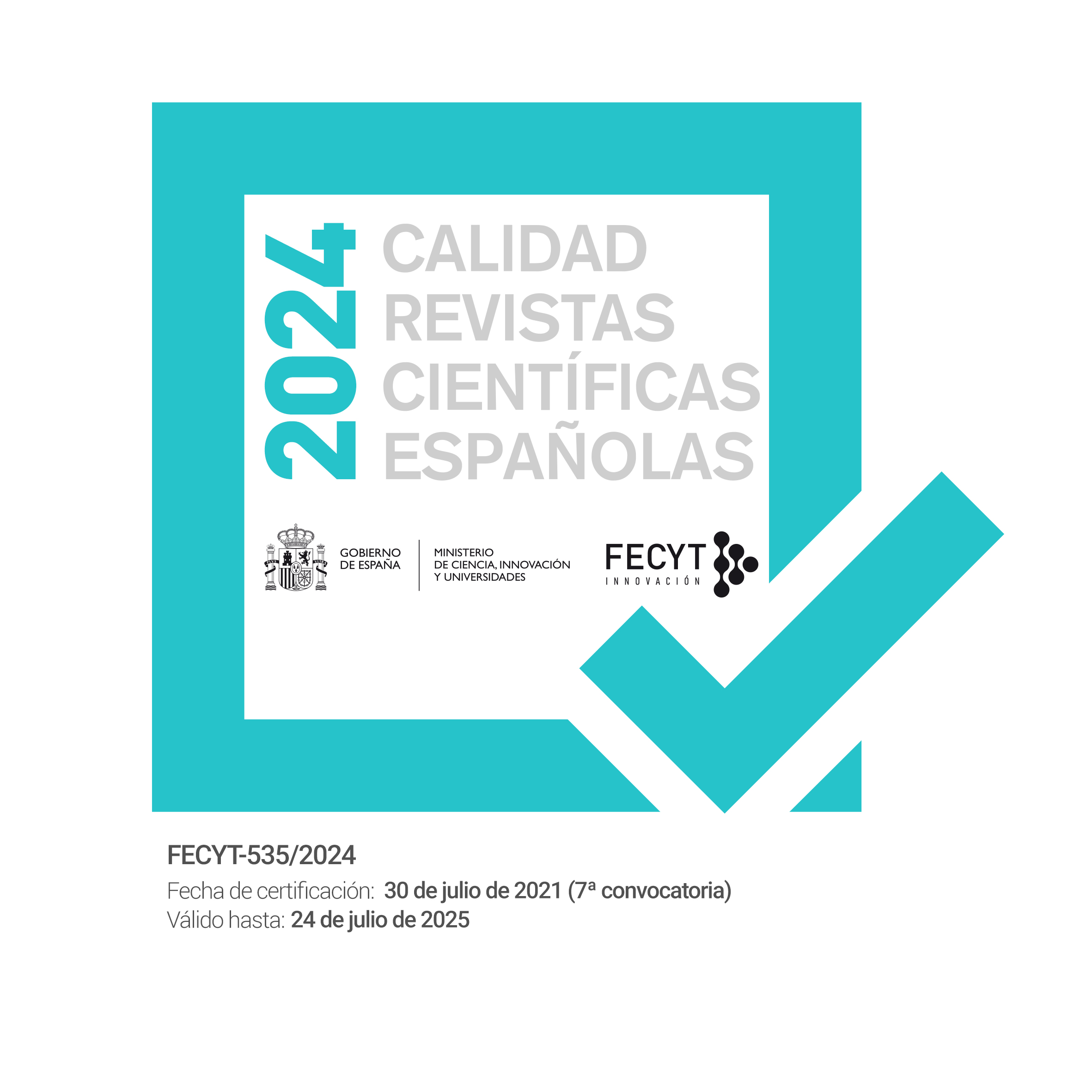Freedom as a social relationship: A sociological interpretation of Amartya Sen’s capability approach
DOI:
https://doi.org/10.26754/ojs_ried/ijds.144Keywords:
capability approach, human development, collective action, sociologyAbstract
The aim of this paper is to analyze, from a sociological viewpoint, the theoretical and methodological challenges posed by Amartya Sen in his textbook Development as Freedom. The concept of freedom, according with Sen, includes what he calls the «opportunity aspect» and the «process aspect» of freedom. My argument is that the human development paradigm has been more focused in exploring the former than the latter, ignoring the relational dimension of human agency. In order to extend the reach of the capability approach in this direction, I propose to accept three complementary premises: 1) that freedom is a social relationship; 2) that the fights for equality are always constrained by power relations; 3) that the agents in these scenarios are collective actors, rather than individuals.
Downloads
References
ALKIRE S (2005). Why the Capability Approach? Journal of Human Development 6(1): 115-133.
ALVAREZ S, DAGNINO E, ESCOBAR A (1999). Lo cultural y lo político en los movimientos sociales de América Latina. En: ESCOBAR A (ed.). El Final del Salvaje. Naturaleza, Cultura y política en la antropología contemporánea. CEREC/ICAN, Bogotá, pp. 133-168.
AYMERICH OJEA I (2001). Sociología de los derechos humanos. Un modelo weberiano contrastado con investigaciones empíricas. Tirant lo Blanch, Valencia.
BALLET J, DUBOIS J L, MAHIEU F R (2007). Responsibility for Each Other's Freedom: Agency as the Source of Collective Capability. Journal of Human Development 8(2): 185-201.
BAUMAN Z (2002). En busca de la política. Fondo de Cultura Económica, México.
BAUMAN Z (2007). Libertad. Editorial Losada, Buenos Aires.
BERGER P L, LUCKMANN T (2006). La construcción social de la realidad. Amorrortu, Buenos Aires.
BERLIN I (2010). Dos conceptos de libertad y otros escritos. Alianza Editorial, Madrid.
BOSETTI G (1993). La libertad positiva. Entrevista con Amartya Sen. Debats 43/44: 77-83.
CORTINA A (2009). El deber de erradicar la pobreza. En: CORTINA A, PEREIRA G (eds.). Pobreza y Libertad. Erradicar la pobreza desde el enfoque de Amartya Sen. Tecnos, Madrid, pp.15-30.
CORTINA A, PEREIRA G (eds.) (2009). Pobreza y Libertad. Erradicar la pobreza desde el enfoque de Amartya Sen. Tecnos, Madrid.
CROCKER D A (2008). Ethics of Global Development: Agency, Capability, and Deliberative Democracy. Cambridge University Press, Cambridge.
DENEULIN S (2006). The capability approach and the praxis of development. Palgrave Macmillan, Houndmills.
DENEULIN S, MCGREGOR J A (2010). The capability approach and the politics of a social conception of wellbeing. European Journal of Social Theory. 13(4): pp.501-519.
DENEULIN S (2011). The capability approach: A note on two interpretations. Ponencia presentada en el congreso From structural adjustment to human development: Impact on poverty and inequality celebrado en el Institute of Development Studies (Sussex, Inglaterra) los días 17 y 18 de noviembre de 2011. Documento no publicado.
DOMÍNGUEZ MARTÍN R, GUIJARRO GARVI M, TRUEBA SALAS C (2011). Recuperando la dimensión política del desarrollo humano. Sistema: Revista de Ciencias Sociales 220: pp.11-32.
DOYAL L, GOUGH I (1994). Teoría de las necesidades humanas. Icaria-FUHEM, Barcelona.
DUBOIS MIGOYA A (2001). Índice de desarrollo humano. En: PÉREZ DE ARMIÑO K (ed.). Diccionario de Acción Humanitaria y Cooperación al Desarrollo. Hegoa, Bilbao.
DUBOIS MIGOYA A (2008). El debate sobre el enfoque de las capacidades: las capacidades colectivas. Araucaria. Revista Iberoamericana de Filosofía, Política y Humanidades 20(2): pp.35-65.
EIZAGUIRRE M, ALBERDI J (2001). Libertades políticas: Una asignatura pendiente en los índices de desarrollo humano. En: IBARRA P, UNCETA K (coords.). Ensayos sobre desarrollo humano. Icaria, Barcelona, pp.221-245.
EVANS P (2002). Collective capabilities, culture and Amartya Sen's Development as Freedom. Studies in Comparative International Development 37(2): 54-60.
FASCIOLI A (2009). Esferas de reconocimiento y capacidades básicas. En: CORTINA A, PEREIRA G (eds.). Pobreza y Libertad. Erradicar la pobreza desde el enfoque de Amartya Sen. Tecnos, Madrid, pp.115-136.
FRASER N, HONNETH A (2006). ¿Redistribución o reconocimiento? Un debate político-filosófico. Editorial Morata, Madrid.
FUKUDA-PARR S (2003). The Human Development Paradigm: Operationalizing Sen's Ideas on Capabilities. Feminist Economics. 9 (2-3): pp. 301-317.
GASPER D (2002). Is Sen’s Capability Approach an Adequate Basis for Human Development? Review of Political Economy 14(13): pp.435-461.
GIDDENS A (1998). La constitución de la sociedad. Bases para la teoría de la estructuración. Amorrortu, Buenos Aires.
GIDDENS A (2001). Las nuevas reglas del método sociológico. Crítica positiva de las sociologías comprensivas. Amorrortu, Buenos Aires.
GIMENO J C, MONREAL P (eds.) (1999). La controversia del desarrollo. Críticas desde la antropología. La Catarata, Madrid.
GORE C (1997). Irreducible social goods and the informational basis of Amartya Sen's Capability Approach. Journal of International Development 9(2): 235-250.
HILL M (2007). Confronting power through policy: On the Creation and Spread of Liberating Knowdlege. Journal of Human Development 8(2): 259-282.
HIRSCHMAN A (1994). Social Conflicts as Pillars of Democratic Market Society. Political Theory 22: 203-218.
IBRAHIM S S (2006). From Individual to Collective Capabilities: The Capability Approach as a Conceptual Framework for Self-help. Journal of Human Development 7(3): 397-416.
LONG N (2007). Sociología del desarrollo: Una perspectiva centrada en el actor. Centro de Investigaciones y Estudios Superiores en Antropología Social, México.
MILL J S (1997). Sobre la libertad. Alianza Editorial, Madrid.
NUSSBAUM M (1997). Capacidades humanas y justicia social. En defensa del esencialismo aristotélico. En: RIECHMANN J (coord.). Necesitar, desear, Vivir. Sobre necesidades, desarrollo humano, crecimiento económico y sustentabilidad. Madrid, Los libros de la Catarata, pp.43-104.
NUSSBAUM M (2002). Las mujeres y el desarrollo humano. Herder, Barcelona.
NUSSBAUM M (2012). Crear capacidades. Propuesta para el desarrollo humano. Paidós, Barcelona.
PALESTINI CÉSPEDES S (2008). Teoría de la Acción y Desarrollo Humano: posibilidades para una renovación conceptual. Revista Latinoamericana de Desarrollo Humano 42 (marzo): 1-18.
PEREIRA G (2004). Autonomía, preferencias adaptativas y políticas públicas. Sistema 178: 71-85.
PNUD (1990). Informe sobre Desarrollo Humano 1990. Tercer Mundo Editores, Santa Fe de Bogotá.
PNUD (1991). Informe sobre Desarrollo Humano 1991. Tercer Mundo Editores, Santa Fe de Bogotá.
PNUD (1992). Informe sobre Desarrollo Humano 1992. Tercer Mundo Editores, Santa fe de Bogotá.
PNUD (2000). Informe sobre Desarrollo Humano 2000. Editorial Mundi-Prensa, Madrid, Barcelona y México.
PNUD (2010). Informe sobre desarrollo humano 2010. Editorial Mundi-Prensa, Madrid. Barcelona y México.
RAO V, WALTON M (eds.) (2004). Culture and Public Action. Stanford University Press / The World Bank, Stanford (California).
RAWLS J (1979). Teoría de la Justicia. Fondo de Cultura Económico, Madrid.
REYES MOREL A (2009). Comunidades de significación como capacidades colectivas. Una revisión comunitarista de la teoría de Amartya Sen. En: CORTINA A, PEREIRA G (eds.). Pobreza y Libertad. Erradicar la pobreza desde el enfoque de Amartya Sen. Tecnos, Madrid, pp.33-55
ROBEYNS I (2005). The capability approach: a theoretical survey. Journal of Human Development 6(1): 93-114.
SALCEDO D (1997). Introducción. En: SEN A K. Bienestar, Justicia y Mercado. Paidós, Barcelona, pp. 16-23.
SEN A K (1979). Utilitarianism and Welfarism. The Journal of Philosophy 76(9): 463-489.
SEN A K (1980). Equality of what? En: MCMURRIN S M (ed.). The Tanner Lectures on Human Values. Cambridge University Press, Cambridge. Traducción castellana: SEN A K (1995). ¿Igualdad de qué? En: RAWLS et al, MCMURRIN S M (ed.). Libertad, Igualdad y derecho. Las conferencias Tanner sobre filosofía moral. Planeta, Buenos Aires, pp.133-156.
SEN, A K (1981). Poverty and Famines. An essay on Entitlement and Deprivation. Clarendon Press, Oxford.
SEN A K (1983). Development, Which way now? The Economic Journal 93 (372): 745-762.
SEN A K (1984a). Rights and Capabilities. En: SEN A K. Resources, Values and Development. Harvard University Press, Cambridge (Massachusetts), pp. 307-324.
SEN A K (1984b). Poor, Relatively Speaking. En: SEN A K. Resources, Values and Development. Harvard University Press, Cambridge (Massachusetts), pp. 325-345.
SEN A K (1985a). Commodities and Capabilities. Elsevier Science Publishers, Amsterdam.
SEN A K (1985b). Well-being, Agency and Freedom. En: The Journal of Philosophy LXXXII (4): 169-221. Traducción castellana: SEN A K (1997). Bienestar, la condición de ser agente y la libertad. Conferencias John Dewey de 1984. En: SEN A K. Bienestar, justicia y mercado. Barcelona, Paidós, pp. 39-108.
SEN A K (1988). The concept of development. En: CHENERY H, SRINIVASAN T N (eds.). Handbook of Development Economics Vol 1. Elsvier, Amsterdam, pp. 9-26.
SEN A K (1989). Development as Capability Expansion. Journal of Development Planning 19: 41-58.
SEN A K (1995). Nuevo Examen de la Desigualdad. Alianza, Madrid. [2010, 4ª reimp.].
SEN A K (1996). Capacidad y Bienestar. En: NUSSBAUM M. C., SEN A. K. (comps.). La calidad de vida. Fondo de Cultura Económica, México, pp.54-84.
SEN A K (1999). Development as Freedom. Knopf, Nueva York. Traducción castellana: SEN A K (2000). Desarrollo y libertad. Ed. Planeta, Colombia.
SEN A K (2002). Rationality and Freedom. The Belknap Press of Harvard University Press, Cambridge (Massachusetts).
SEN A K (2005). Human Rights and Capabilities. Journal of Human Development 6(2): 151-166.
SEN A K (2010). La idea de la justicia. Taurus, Madrid.
SIMMEL G (1986). Sociología. Estudios sobre la socialización. Volumen 1. Alianza Editorial, Madrid.
STEWART F (2005). Groups and capabilities. Journal of Human Development 6(2): 185-204.
STEWART F, DENEULIN S (2002). Amartya Sen's Contribution to development thinking. Studies in Comparative International Development 37(2): 61-70.
STREETEN P, BURKI S J, UL HAQ M, HICKS N, STEWART F (1986). Lo primero es lo primero. Satisfacer las necesidades humanas básicas en los países en desarrollo. Madrid, Tecnos.
STREETEN P (1995). Foreword. En: UL HAQ M. Reflections on Human Development. Oxford University Press, Nueva York, pp.vii-xvi.
VIOLA A (comp.) (2000). Antropología del desarrollo. Teorías y estudios etnográficos en América Latina. Barcelona, Paidós Studio.
WAGNER P (2008). Modernity as an Experience and Interpretation. A new sociology of Modernity. Cambridge. Polity Press.
YOUNG I M (2001). Equality of whom? Social groups and Judgements of Injustice. The Journal of Political Philosophy 9(1): 118.
ZIMMERMANN B (2006). Pragmatism and the capability approach: Challenge in Social Theory and Empirical Research. European Journal of Social Theory 9(4): 467-484.
Downloads
Published
How to Cite
Issue
Section
License
Copyright (c) 2015 Guillermo Otano-Jiménez

This work is licensed under a Creative Commons Attribution-NonCommercial-NoDerivatives 4.0 International License.








